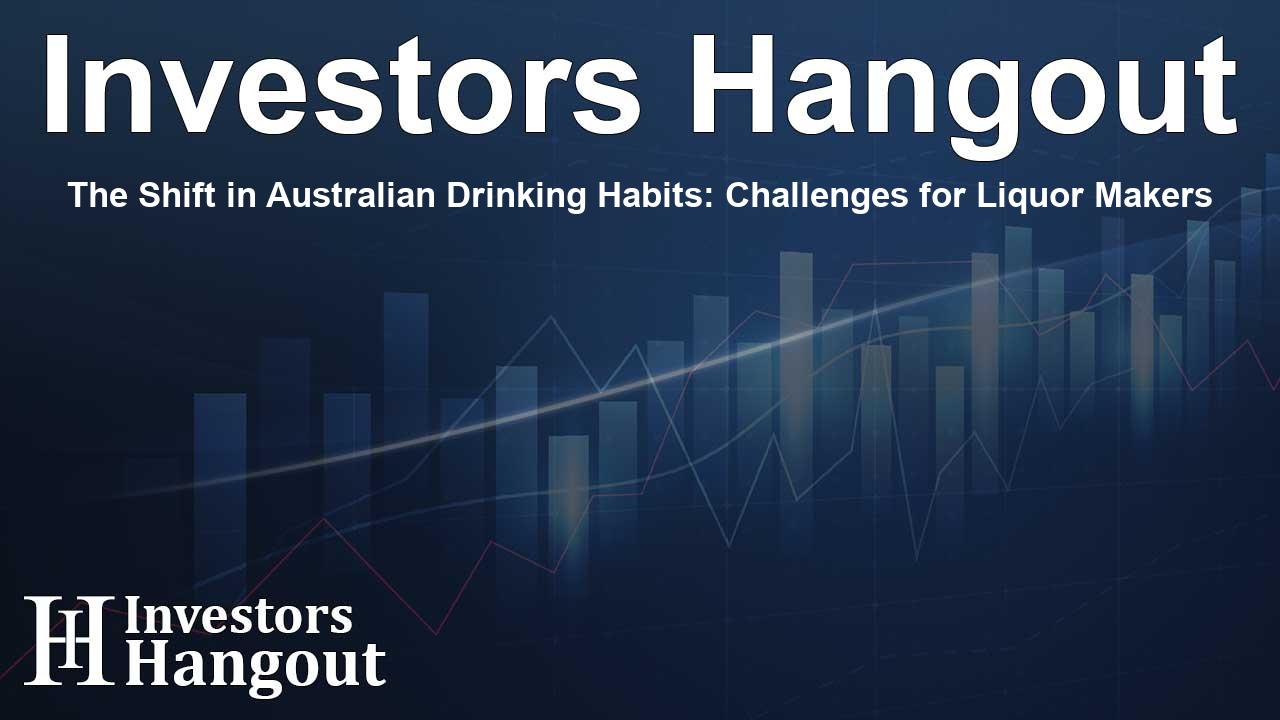The Shift in Australian Drinking Habits: Challenges for Liquor Makers

Challenges Facing Liquor Producers in Australia
Australia’s liquor producers are currently navigating a tough economic landscape. Many store owners, such as Louise Dowling of P&V Wine + Liquor Merchants, are feeling the strain as alcohol sales decline. To cope with staff reductions, Dowling has had to extend her working hours, highlighting the ongoing cost of living crisis that is influencing consumer behavior nationwide.
Current Sales Trends in the Australian Alcohol Market
There is a clear shift in how consumers are spending their money. After a surge in demand during the pandemic lockdowns, when many people saved more, the alcohol industry is now facing one of its most significant downturns in recent history. According to the Australian Bureau of Statistics, alcohol sales have only grown by 0.7% year over year, but this figure conceals a concerning reality: the volume sold has actually decreased by 3.9% in the same period.
Understanding the Drop in Consumer Spending
This downturn is occurring even though Australia ranks as one of the wealthiest nations, known for its high alcohol expenditure. It reflects a broader global trend where fewer individuals are choosing to consume alcohol, driven by increased health awareness and personal lifestyle choices.
Corporate Earnings Reflect Market Struggles
Major companies in the alcohol sector are reporting disappointing earnings. For example, Coles, a leading alcohol retailer, announced a 21% decline in profits from its liquor stores, attributing this to a slowdown in discretionary spending. Similarly, Treasury Wine reported a 7% drop in profits, linked to a decrease in consumption trends both domestically and internationally.
Shifting Consumer Preferences
Endeavour managed a slight increase of 1.8% in pre-tax profit, but analysts viewed this negatively due to its minimal sales growth. Analyst Tom Kierath pointed out that while the pandemic initially boosted sales as consumers stocked up at home, ongoing inflation and rising living costs have now led shoppers to look for more affordable options.
Influences on Consumer Behavior in the Liquor Market
High inflation and increasing living costs are prompting consumers to rethink their spending habits across various categories, including alcoholic beverages. Asahi, the leading brewer in Australia, reported an 11.7% drop in operating profit and adjusted its annual growth forecast, signaling further strain on the market.
The Growing Trend of Health-Conscious Choices
Beyond financial factors, health concerns are playing a significant role in shaping consumer preferences. With the rise of mindful drinking, many individuals, particularly younger generations, are adopting healthier lifestyles. Reports indicate a significant increase in the number of people choosing to abstain from alcohol altogether, marking a cultural shift.
Looking Ahead: The Future of Alcohol Consumption in Australia
Market research forecasts a continued decline in the Australian alcohol market, predicting an average growth rate of just 1% annually until 2028. With escalating production costs and government tax increases adding to the challenges, the outlook for traditional liquor sales appears bleak.
Emerging Trends Among Younger Australians
The increasing focus on health and wellness, combined with economic pressures, suggests that a return to previous drinking levels is unlikely. Influencers like Natalie Battaglia have noted a surge in interest for non-alcoholic beverages, reflecting the changing preferences of younger consumers.
Frequently Asked Questions
What factors are contributing to the decline in alcohol sales in Australia?
Several factors, including rising living costs, health-conscious consumer trends, and decreased discretionary spending, are driving the decline.
Are there any specific demographics showing a rise in abstinence from alcohol?
Yes, there has been a significant increase in abstinence among younger generations, especially those aged 18 to 25.
How are alcohol retailers responding to these market challenges?
Many retailers are adapting their business models to focus on affordability and health-conscious alternatives to navigate the downturn.
What trends are emerging alongside the decline in alcohol consumption?
Consumers are increasingly gravitating towards non-alcoholic beverage options and embracing a lifestyle centered around health and wellness.
What does the future hold for the Australian alcohol market?
Analysts anticipate a gradual slowdown with minimal growth expected in the coming years, influenced by economic conditions and health trends.
About The Author
Contact Ryan Hughes privately here. Or send an email with ATTN: Ryan Hughes as the subject to contact@investorshangout.com.
About Investors Hangout
Investors Hangout is a leading online stock forum for financial discussion and learning, offering a wide range of free tools and resources. It draws in traders of all levels, who exchange market knowledge, investigate trading tactics, and keep an eye on industry developments in real time. Featuring financial articles, stock message boards, quotes, charts, company profiles, and live news updates. Through cooperative learning and a wealth of informational resources, it helps users from novices creating their first portfolios to experts honing their techniques. Join Investors Hangout today: https://investorshangout.com/
The content of this article is based on factual, publicly available information and does not represent legal, financial, or investment advice. Investors Hangout does not offer financial advice, and the author is not a licensed financial advisor. Consult a qualified advisor before making any financial or investment decisions based on this article. This article should not be considered advice to purchase, sell, or hold any securities or other investments. If any of the material provided here is inaccurate, please contact us for corrections.
